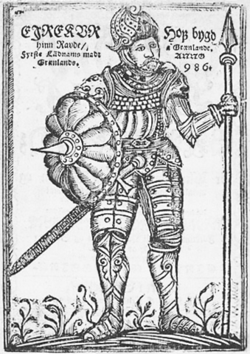
An outlaw, in its original and legal meaning, is a person declared as outside the protection of the law. In pre-modern societies, all legal protection was withdrawn from the criminal, so anyone was legally empowered to persecute or kill them. Outlawry was thus one of the harshest penalties in the legal system. In early Germanic law, the death penalty is conspicuously absent, and outlawing is the most extreme punishment, presumably amounting to a death sentence in practice. The concept is known from Roman law, as the status of homo sacer , and persisted throughout the Middle Ages.
Contents
- Legal history
- Ancient Rome
- England
- In other countries
- As a political weapon
- Popular usage
- See also
- Notes
- References
A secondary meaning of outlaw is a person systematically avoiding capture by evasion and violence. These meanings are related and overlapping but not necessarily identical. A fugitive who is declared outside protection of law in one jurisdiction but who receives asylum and lives openly and obedient to local laws in another jurisdiction is an outlaw in the first meaning but not the second (one example being William John Bankes). A fugitive who remains formally entitled to a form of trial if captured alive but avoids capture because of the high risk of conviction and severe punishment if tried is an outlaw in the second sense but not the first (Sándor Rózsa was tried and sentenced merely to a term of imprisonment when captured).
In the common law of England, a "writ of outlawry" made the pronouncement Caput lupinum ("[Let his be] a wolf's head"), equating that person with a wolf in the eyes of the law. Not only was the subject deprived of all legal rights, being outside the "law", but others could kill him on sight as if he were a wolf. [1] Women were declared "waived" rather than outlawed, but it was effectively the same punishment. [2]





